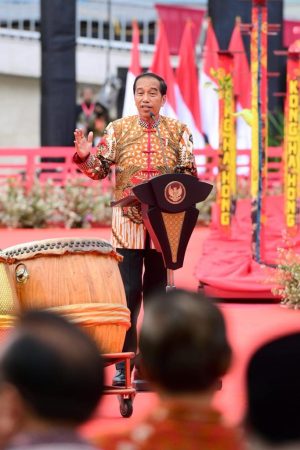Yesterday, Reuters journalists interviewed Indonesia’s President Joko “Jokowi” Widodo about several issues of national importance as he approaches the turn into the last of his 10 years in office. Among the several newsworthy issues to come out of the interview, which included the president expressing confidence that the U.S. electric vehicle firm Tesla will make significant investments in Indonesia, was the announcement that Indonesia plans to send a top general to military-ruled Myanmar as part of its efforts to resolve the country’s entrenched political crisis.
As chair of the Association of Southeast Asian Nations (ASEAN) for 2023, Indonesia has inherited from Cambodia, last year’s chair, the unenviable task of trying to address the conflict that has erupted since the February 2021 coup. In particular, it faces the thorny challenge of how to push the military junta, which yesterday extended the country’s state of emergency for a further six months, to implement an ASEAN peace plan.
According to the Reuters report, Jokowi said that the general would talk to its leaders about his own country’s democratization after the collapse of the military-backed New Order administration in 1998.
The president did not name the individual that he had in mind but suggested the person was involved in Indonesia’s reform process and would be dispatched to the country “as soon as possible.” He did not rule out making a trip to Myanmar himself, but acknowledged that dialogue would likely be “easier” between officials from similar backgrounds.
“This is a matter of approach. We have the experience, here in Indonesia, the situation was the same,” the president told Reuters. “This experience can be addressed, how Indonesia began its democracy.”
Indonesian officials have already flagged Indonesia’s experience as a possible template for Myanmar. Speaking at the World Economic Forum in Davos, Switzerland last month, Luhut Panjaitan, the coordinating minister for maritime affairs and investment, urged Myanmar’s military junta to hand over power to “qualified” leaders, and to replicate his country’s political transition since 1998. (Indeed, Luhut, a former general who serves as something like a roving minister-at-large in Jokowi’s government, would not be a surprise choice for a special mission to Myanmar.)
Jokowi’s announcement gives a sense of the approach that Indonesia is likely to play this year: it plans to twin like-minded appeals with greater pressure on the military junta. Since last year, Indonesian officials including the president himself have advocated that ASEAN respond more strongly to the military’s failure to implement the bloc’s Five-Point Consensus peace plan, which it agreed to at a special ASEAN meeting in Jakarta in April 2021 in transparently bad faith. The Consensus calls for an immediate end to violence and inclusive dialogue between “all parties” to the conflict, neither of which the military has done anything to bring about. Indeed, it has proscribed most of its opponents as “terrorists” and has sought to eradicate them with all the ruthlessness that such a term suggests.
In his interview with Reuters yesterday, Jokowi said that ASEAN would “not be held hostage” to the Myanmar conflict and if there was no progress on the implementation of the Five-Point Consensus that it would “act decisively” – though he did not specify exactly what this meant.
While Indonesia’s post-1998 trajectory does not offer a direct parallel to Myanmar, and there are reasons to doubt that the Myanmar military is ready to compromise, Jakarta deserves some credit for seeking creative ways of handling the country’s crisis as ASEAN chair.

































